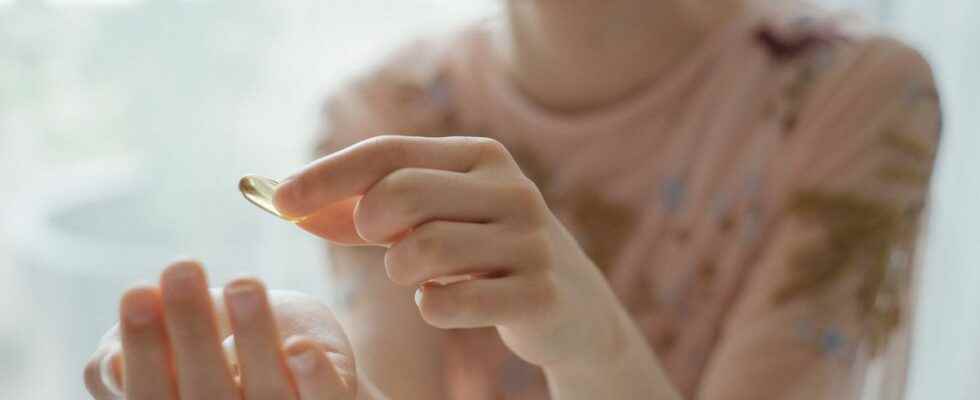Published on
Updated
Reading 2 mins.
in collaboration with
Dr Christophe de Jaeger (Longevity and geriatrics)
Medical validation:
September 12, 2022
Certainly, vitamin D has long been known for its role in bone mineralization. But can it prevent the risk of fractures? This is what researchers from Brigham and Women’s Hospital wanted to answer.
In the elderly, covid, and / or deficient, vitamin D is widely prescribed. However, few studies have analyzed the effect of this vitamin on the occurrence of fractures. That’s why a team of scientists from Brigham and Women’s Hospital set out to find answers.
A clinical trial of more than 25,000 adults
The researchers conducted a large study of 25,000 healthy adults who did not have vitamin D deficiency, specific bone problems or osteoporosis.
All were supplemented with vitamin D, at a rate of 2000 IU per day, and with fatty acids, at a rate of 1 g per day.
After just over 5 years of follow-up, analyzes showed that vitamin D supplementation had not reduced “total, non-vertebral or hip fractures”.
No major effects on osteoporotic fractures, wrist fractures or pelvic fractures were otherwise reported.
“Overall, the results of this large clinical trial do not support the use of vitamin D supplements to reduce fractures in generally healthy American men and women.“said lead author Meryl LeBoff, chief of the calcium and bone section of the endocrine division at Brigham and Women’s Hospital.
Nevertheless – and it’s important to remember – most of the trial participants were not deficient in vitamin D.
For Dr De Jaeger, this study therefore raises more questions than it answers.
“I am not surprised by the results of the study. In a general and relatively young population (over 50), and regardless of the status of these people (history, deficiencies, etc.), supplementing them with vitamin D does not change nothing at the level of the fracture risk. Indeed, they do not represent the population at major risk, that is to say the elderly”, specifies the specialist, before adding “that before carrying out a test, it would have been necessary make an accurate diagnosis”.
Any vitamin D supplementation requires an accurate diagnosis beforehand.
Whatever the “health” reason, taking vitamin D is not without consequences.
“Before taking it, it is imperative to dose it correctly. Indeed, if you are not deficient and consume it, you run real risks: kidney failure, neurological disorders… No doctor or scientist cannot therefore recommend blind intake of vitamin D”warns Dr. De Jaeger.
However, vitamin D remains of great interest from a health point of view: it has an action on immunity, sarcopenia, Covid-19… and prevents certain cancers. Everything is therefore a question of dosage and diagnosis.
